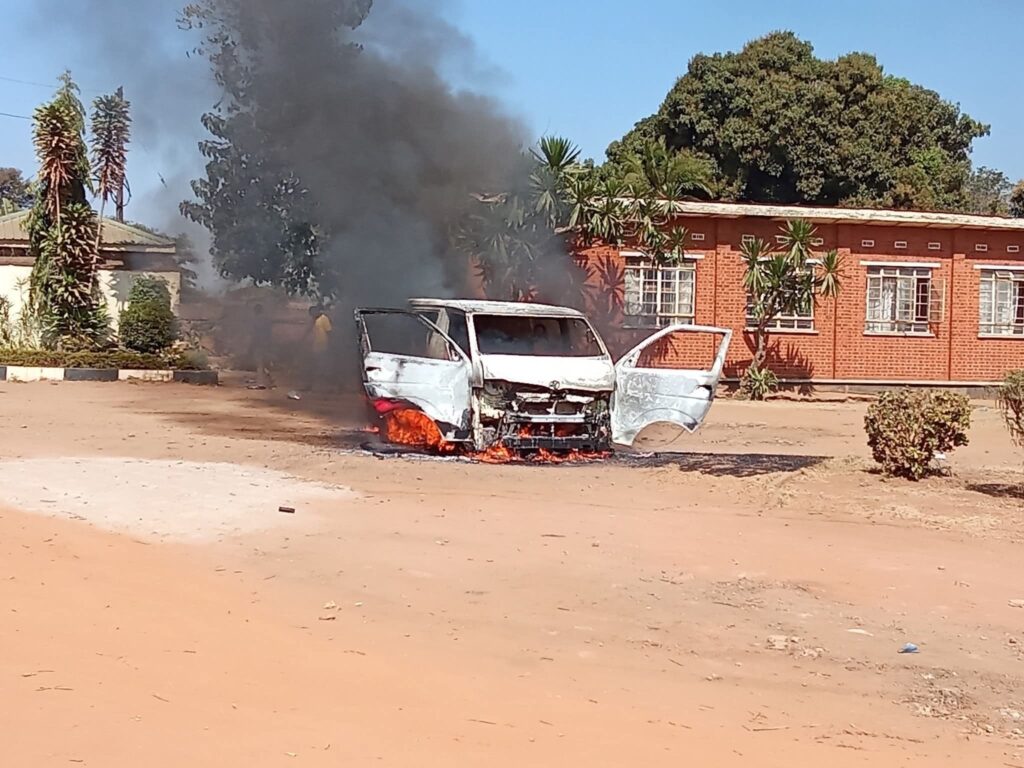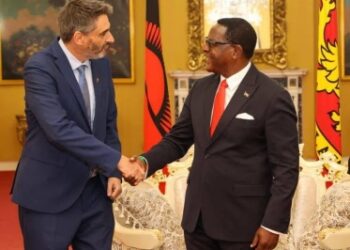In a shocking turn of events, civil society activist Agape Khombe has come forward with explosive revelations that Thursday’s torching of two vehicles during demonstrations in Lilongwe was not an attack by outsiders, but rather the work of disgruntled insiders after a deal went sour.
Khombe, a close ally to some of the organisers of the demonstrations, said the arson was orchestrated by some factions among the organisers and participants who felt they did not get a fair share of the funding provided by the Democratic Progressive Party (DPP).
“It was a drama gone soar on the part of organisers. I have very strong evidence that the minibus was torched by the disgruntled side of the organizers,” Khombe writes on his Facebook page.
Being an activist himself, he has not yet disclosed whether he was part of the organisers, but challenges to volunteer his testimony before the Independent Complaints Commission, the Malawi Police Service, the Malawi Defence Force, and even international diplomatic bodies.
“Osapitsa mbiri ya Malawi ulere (Don’t destroy Malawi’s reputation for free),” he adds.
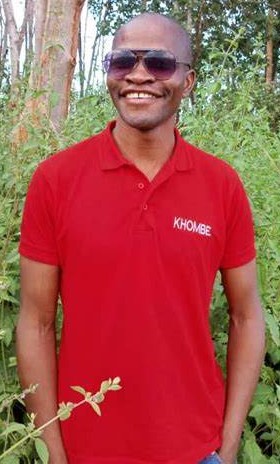
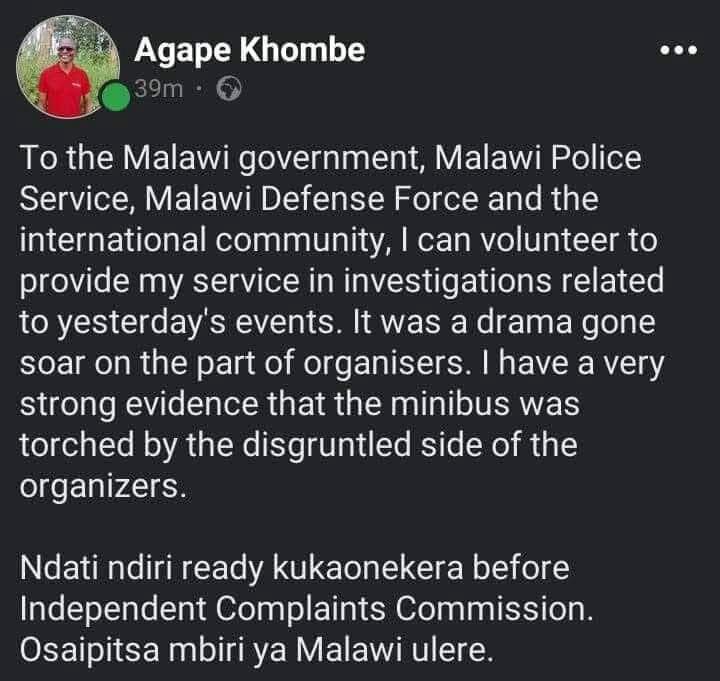
While Khombe stopped short of naming names, his assertion aligns with recent investigative reporting by The Pangolin that revealed evidence of heavy DPP funding behind the June 26 demonstrations.
According to The Pangolin exposé, organisers were flushed with cash, including for transport, fuel, and mobilization of crowds.
One of the organizing activists Edward Kambanje, who worked closely with Silvester Namiwa, disclosed in an audio leak that DPP-aligned network have channeled huge sums of money that “no one should be worried of how the operations of the demos will be funded.”
This audio leak fueled suspicions that the demonstrations are never purely a civil society affair, but a politically sponsored agitation with hidden hands pulling the strings.
With huge sums of money at stake, Khombe’s post now reveals that some organisers were either shortchanged or betrayed, resulting in frustration, infighting, and ultimately the dramatic torching of vehicles.
The Thursday demonstrations shocked everyone when Namiwa, the main face behind the Citizens for Credible Elections was left to march alone with fellow civil society activists conspicuously missing and with so support from prominent politicians.
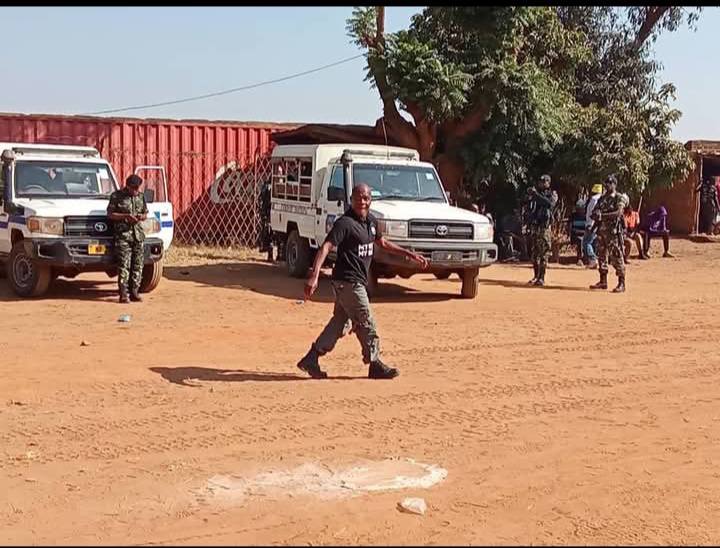
The torching of the vehicles is not the first time the DPP and its affiliates have been linked to suspicious violence. On June 23, a vehicle in the convoy of DPP Vice President for the Central Region Alfred Gangata was set ablaze in Mvera, Dowa.
Just like this time the blame is on MCP sympathizers to have torched the two vehicles in Lilongwe, in Dowa the style was the same, without any conclusive police investigation, the DPP quickly pinned the blame on the ruling party.
Insiders later disclosed that the Mvera arson was a staged event.
Political observers warn that if Khombe’s claims are true, this marks a dangerous descent into destructive power games, where political actors and their surrogates exploit public protests for private gain, resorting even to violence when internal deals collapse.
“This is not just about a few angry activists. It’s about political manipulation, weaponizing civil society for optics. And if true, it endangers Malawi’s democratic fabric,” said a political science lecturer at University of Malawi.
Soon after the Lilongwe incident President Dr. Lazarus McCarthy Chakwera condemned the violence and called for thorough investigation emphasizing that both demonstrators and law enforcement officers found to be wrong should be held accountable under the law.
The Ministry of Homeland Security, Malawi Police Service and the Malawi Defence Force have not issued an update on the Lilongwe vehicle fires, and it is not clear whether Khombe’s offer to cooperate has been taken up.
However, with growing public pressure and calls for an independent inquiry, the authorities may be forced to act.
Khombe’s revelation speaks louder and clearly that Malawi’s civic space is under siege from the politics hiding behind protest placards.
